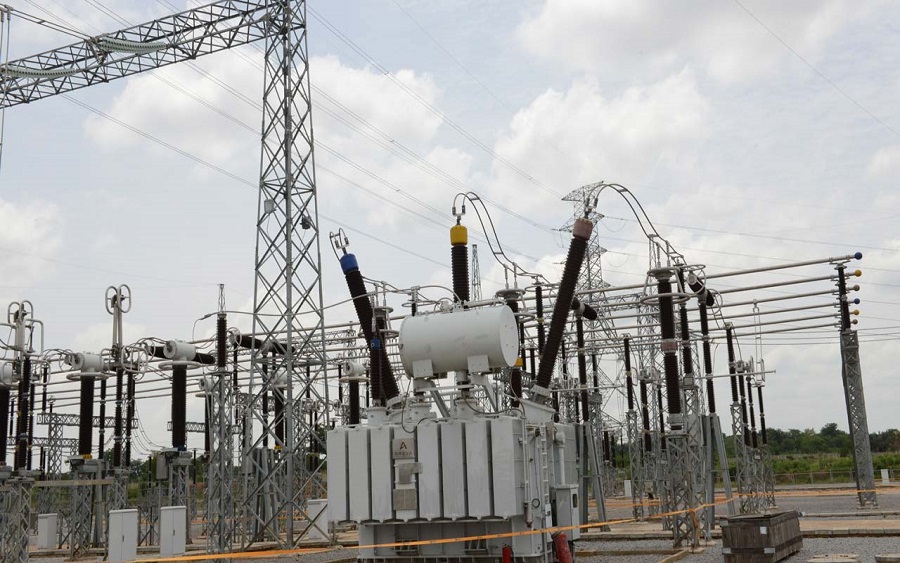Electricity distribution companies started the year with a further increase in electricity tariffs. This follows a new order issued by the Nigerian Electricity Regulatory Commission NERC instructing DisCos to increase tariffs effective January 1, 2021.
The order was signed by the new NERC Chairman, Sanusi Garba and one of its Commissioners Dafe Akpeneye.
READ: Estates in Lekki increase electricity tariff to N105/kWh
The increase in tariffs follows a suspension of an earlier order issued in August increasing tariffs starting September 1, 2020. However, a threat by Labour to go on a nationwide strike forced the government to suspend the tariffs for two weeks ending October 15th, 2020.
READ: Only customers with minimum of 12 hours electricity can have tariff increase – FG
The Federal Government and the organized Labour then agreed to provide a tariff relief of N10.20 per kilowatt-hour for Nigerians for the next 3 months and also distribute 6 million free meters following the completion of the 2 weeks suspension of electricity tariff.
NERC was yet to publish the orders on its website as of when this article was sent.
READ: Buhari moves against DISCOs that collect money for prepaid meters
New Tariffs
The latest tariff increase suggests all customers will see their tariffs increased regardless of the band unlike in the previous order where tariff class D & E was frozen. Customers on Tariff Class A, B, and C will see their tariff go back to the tariff order released on September 1st, 2020. Some of these customers will see their tariff increase by as high as 120% compared to the pre-September 1st MYTO 2020 levels.
READ: Covid-19: FG publishes list of suspended passports for refusing post-arrival Covid-19 test
Customers in tariff classes D & E who are those with less than an average of 12 hours of electricity daily also saw their tariff increase albeit slightly and not up to the levels originally included in the September 2020 tariff order. In general, Nigerians (including businesses) will see their tariffs rise by as much as 75% depending on the distribution companies.
The Nigerian Electricity Regulatory Commission (NERC) issued a public notice explaining the tariff increase. According to a press release shared by NERC;
“The Commission hereby state unequivocally that NO approval has been granted for a 50% tariff increase in the Tariff Order for electricity distribution companies which took effect on January 1, 2021. On the contrary, the tariff for customers on service bands D & E (customers being served less than an average of 12hrs of supply per day over a period of one month) remains frozen and subsidised in line with the policy direction of the Federal Government. In compliance with the provisions of the Electric Power Sector Reform Act (EPRSA) and the nation’s tariff methodology for biannual minor review, the rates for service bands A, B, C, D and E have been adjusted by NGN2.00 to NGN4.00 per kWhr to reflect the partial impact of inflation and movement in foreign exchange rates.”
What this means: NERC is confirming that though tariff was increased, it is not a 50% hike as stated by some news sites.
- Nairametrics explained that the tariff high is on average 75% from pre-September (MYTO 2020) levels before the initial September 1 tariff order and revised October tariff order based on the agreement with Labour.
- However, it appears some news sites misconstrued this as a 50% hike from the tariffs agreed with labour in October 2020.
- From the release of this order, customers will pay higher electricity tariffs.
- Prepaid customers will witness an immediate increase when they vend for power while postpaid customers metered and estimated billing, will start paying the full tariff in February when they get their bills.
Tariff Assumptions
In determining the tariff, NERC relied on a number of assumptions made up of key economic indicators such as exchange rate, inflation rate, and power generation.
READ: What to expect from Nigeria’s capital market in 2021
- Inflation rate: The November 2020 inflation rate of 14.9% was relied upon to project for the year compared to 13.1% average for the period January to November 2020.
- Exchange rate: NERC switched from using N360 or a fixed CBN exchange rate, to NAFEX rate which it placed at NGN/USD exchange rate (+1%) of N397.44. This was the rate as of December 29, 2020.
- US Inflation rate which is often used for Gas prices was set at 1.22% also based on November 2020 rates
- Generation capacity adopted for the year remained unchanged, suggesting NERC was not expecting any major increase in 2021 despite increasing the cost of power. “The year 2020 projection on available generation is maintained for the first half (Jan-Jun) of 2021 to account for the impact of the delay in the implementation of MYTO-2020. No change was applied to generation projections from July 2021 and beyond.”
- Gas Prices which is a major factor in determining electricity tariff was $2.5/MMBTU while gas transportation cost of US$0.80/MMBTU and gas prices outside the regulated rates for GenCos with effective Gas Sale Agreements were maintained.
The new tariff increases effectively mean the Federal Government has removed an estimated 80% of its subsidy on electricity, giving the Discos the cost-reflective tariffs that they have requested for since 2016 when the tariff was last increased. DisCos maintain that the extra amount being paid by electricity customers will be passed on to government agencies; Nigerian Bulk Electricity Trader and the Market Operator who will then pay gas providers, the Transmission company and generating companies.
